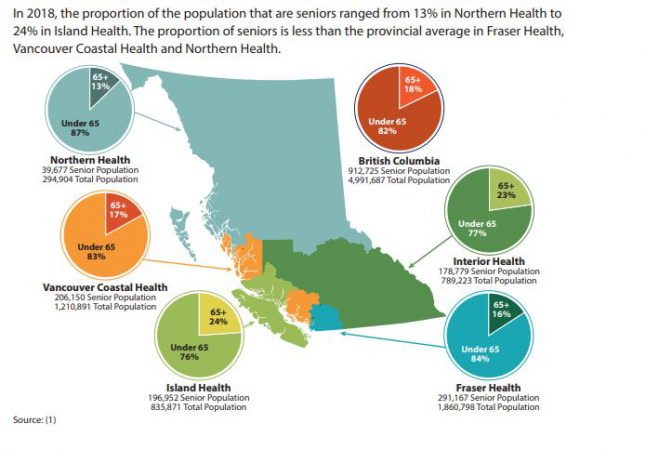The Office of the BC Seniors Advocate issued its 2019 report and the results within the Northern Health Region are a bit of a mixed bag.
Seniors Advocate, Isobel Mackenzie told Vista Radio our health region has the lowest number of seniors at 39,677, which accounts for 13% of the total population.
Mackenzie believes there’s a simple reason for this.
“The north is an area people will go to when they are younger and traditionally, there has not been the number of supports in the northern health region that there are in other parts of the province to support people as they age.”
Many people remain attracted to warmer climates.
“You’re seeing a migration to some extent of people out of the north looking to find work and educational opportunities in other parts of the province and if they stay there, sometimes the parents will follow.”

The number of home care clients within Northern Health rose by 20% over the past 12 months according to BC Seniors Advocate Isobel Mackenzie.
That’s well above the paltry 2% hike across the province.
Mackenzie is of the opinion the home care program within our health region has improved immensely.
“I do know that Northern Health has made it one of the foundations that they’re building to care for their aging population is to look at increasing their home care and support program and we’re starting to see the results of that emphasis.”

However, just over 12-thousand people in the north over the age of 65 got their flu shot during the 2018-19 calendar year.
Mackenzie states, while the effectiveness of the flu vaccine can diminish as you get older, hanging around healthy people, is just as crucial.
“So, if you’re 95, the flu vaccine may not be as effective for you as it will be if you are 35 but what is still equally as effective for you at 95 is if the people around you don’t have the flu, you won’t get it.”
The average wait time to get into long-term care in the province is 129 days, Northern Health was longer than that at 224 days.
Something going on in the Bulkley Valley Lakes District you think people should know about?
Send us a news tip by emailing [email protected].





